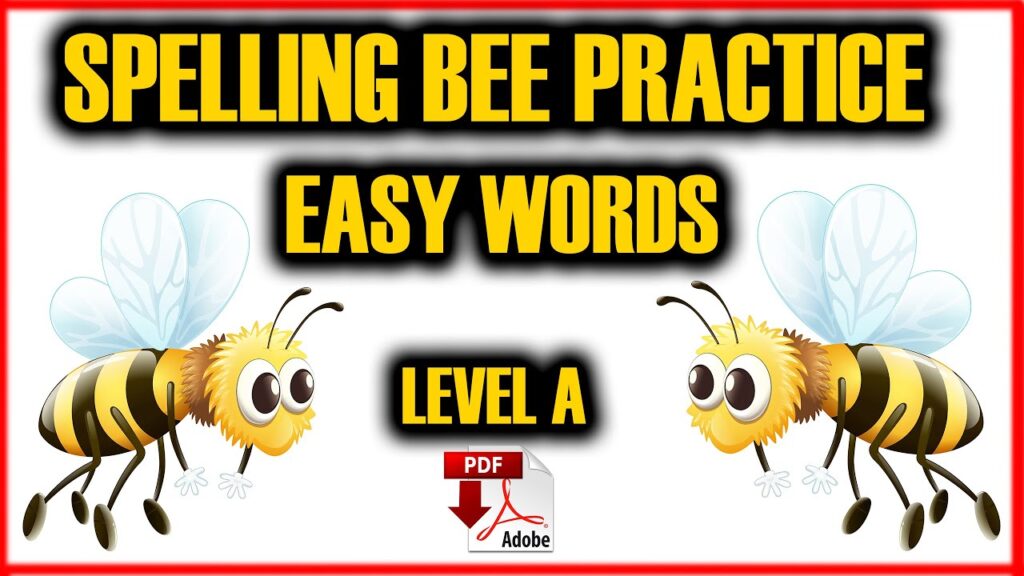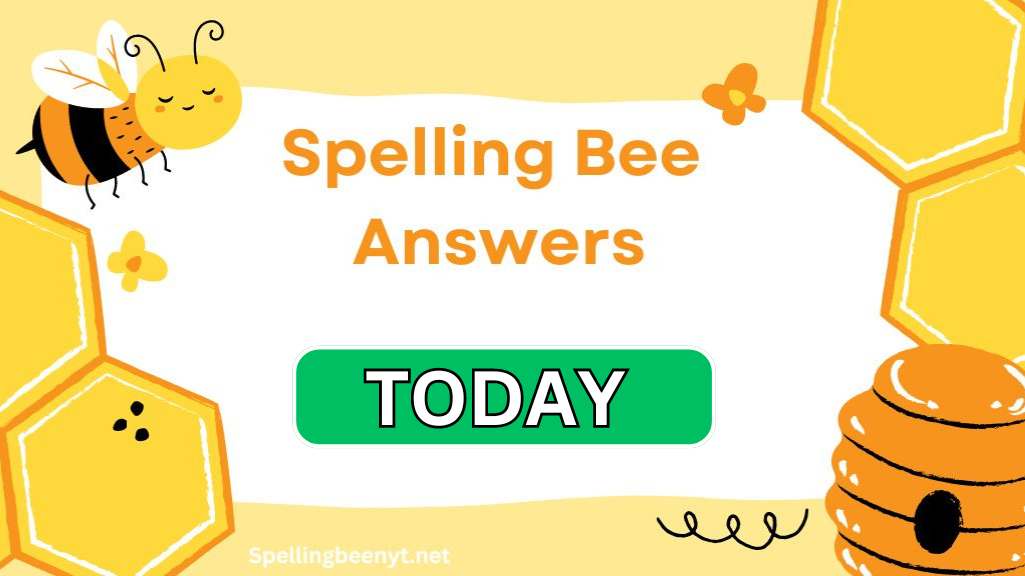Introduction to Spelling Bees Answers Today
Are you ready to dive into the electrifying world of spelling bees? These competitions are not just about memorizing words; they’re a test of wit, strategy, and determination. Whether you’re an aspiring participant or simply a fan cheering from the sidelines, mastering the art of spelling can be thrilling.
The excitement builds as contestants battle it out over tricky words while audiences hold their breath in anticipation. If you’re looking for Spelling Bee Answers Today, you’ve come to the right place! This guide will equip you with essential tips, tricks, and strategies to tackle any spelling challenge like a pro. Let’s get started on your journey toward becoming a spelling champion!
Tips and Tricks for Preparing for a Spelling Bee
Preparing for a spelling bee Answers Today can be both exciting and challenging. Start by familiarizing yourself with the competition format. Know how many rounds there are and what types of words you might encounter.
Create a study schedule that fits your lifestyle. Dedicate specific time slots each day to practice spelling various words. Break them down into categories, such as difficult sounds or tricky endings.
Utilize flashcards for quick memory reinforcement. Write the word on one side and its definition, or use it in a sentence on the other. This method reinforces learning through repetition.
Engage in group practices with friends or family members. They can provide valuable feedback and simulate real contest pressure. Don’t forget to rest before the competition day! A fresh mind will help you think clearly when faced with those tricky words during the event.

Common Mistakes to Avoid
One of the biggest pitfalls in spelling bee Answers Today is overconfidence. Many participants underestimate the complexity of words, thinking they know how to spell them without practicing. This can lead to costly mistakes.
Another common error is neglecting to read words carefully. Rushing through can cause you to misinterpret letters or syllables, affecting your performance.
It’s also essential not to overlook pronunciation variations. Some words may have different meanings based on how they’re pronounced, which can confuse even seasoned spellers.
Many competitors fail to prepare for homophones—words that sound alike but are spelled differently. A thorough understanding of these will give you an edge and boost your confidence when facing tricky questions during competitions.
Strategies for Approaching Unknown Words
When faced with an unknown word, take a deep breath. Panic can cloud judgment. Start by breaking the word into manageable parts. Identify prefixes and suffixes; they often reveal meaning clues. For instance, “un-” typically suggests negation.
Next, look for familiar roots. Many English words share Latin or Greek origins. Recognizing these can help decipher even the trickiest terms. Don’t forget to consider context! The surrounding sentences might provide hints about the word’s definition or usage.
If possible, say the word out loud. Hearing it may trigger familiarity or help you visualize its spelling more clearly. Practice makes perfect—regularly exposing yourself to challenging vocabulary builds confidence over time. Remember that every expert was once a beginner grappling with new terms in their way.
Sample Spelling Bee Questions and Answers
Sample spelling bee questions can help participants gauge their readiness. For instance, “What is the correct spelling of ‘definitely’?” Commonly misspelled, it’s often confused with ‘definitely.’ Knowing such nuances makes a difference.
Another frequently used word might be “accommodate.” Students tend to struggle with double letters here. Remembering its structure aids in accuracy. Words like “entrepreneur” also pop up regularly. This French-derived term can trip up even seasoned spellers due to its unique phonetics and letter combination.
In higher-level competitions, you might encounter terms like “onomatopoeia.” Understanding both meaning and pronunciation serves as an advantage when tackling these challenging words. Practice with diverse vocabulary helps build confidence. Engaging with different sources—books or online quizzes—can enhance your skills significantly while preparing for any upcoming competition.
Final Preparation and Practice Methods
As the big day approaches, focus on refining your skills. Daily practice is crucial. Set aside time each day to review words and their meanings. This builds familiarity and confidence.
Utilize flashcards for quick recall. Write a word on one side and its definition or part of speech on the other. These can be handy during short breaks.
Group study sessions also enhance learning. Collaborating with peers allows you to exchange tips and tackle challenging words together.
Don’t overlook mock competitions. Simulating the actual event helps you get comfortable under pressure. Plus, it identifies areas where you may need improvement.
Incorporate spelling apps into your routine for interactive learning experiences. They often feature games that make studying enjoyable while reinforcing concepts. Most importantly, stay relaxed during practice sessions to foster an effective learning environment without added stress.
FAQs About Spelling Bee Answers Today
1. What is the Spelling Bee puzzle?
The Spelling Bee is a popular daily word puzzle from The New York Times, where players create words using a set of seven letters arranged in a honeycomb shape. Each word must include the center letter.
2. Where can I find today’s Spelling Bee answers?
You can find today’s answers on websites that track daily solutions, forums, or wait for The New York Times to publish them the next day. Some players also share hints without spoilers to help others solve it themselves.
3. What is a pangram in the Spelling Bee?
A pangram is a word that uses all seven given letters at least once. It typically earns the most points and is key to achieving a high score in the puzzle.
4. How do I get better at solving the Spelling Bee?
- Start with shorter words and work your way up.
- Focus on common prefixes and suffixes (e.g., -ing, -ed, -er).
- Look for the pangram early—it helps unlock other words.
- Experiment with letter combinations and rearrange them in your mind.
5. What are the different Spelling Bee ranking levels?
As you find more words, you move up in rank:
- Beginner
- Good Start
- Moving Up
- Good
- Solid
- Nice
- Great
- Amazing
- Genius (highest level before reaching Queen Bee)
6. What is the “Queen Bee” title?
“Queen Bee” is achieved when you find every possible word in that day’s puzzle. It’s the ultimate goal for dedicated players!
7. Can I play past Spelling Bee puzzles?
Yes, The New York Times offers past Spelling Bee puzzles to subscribers. However, the free daily version only allows you to play the current day’s puzzle.
8. Is there a time limit for solving the Spelling Bee?
No, you can take as long as you want. The puzzle is available for a full day before resetting with new letters.
9. Can I use Spelling Bee hints without seeing the full answers?
Yes! Many websites provide hints like:
- The number of words possible
- The first letter of the pangram
- Word count by letter length
10. Do I need a subscription to play Spelling Bee?
Yes, a New York Times Games subscription is required for full access, but a limited version is available for free each day.
Conclusion and Encouragement
Embracing a Spelling Bee Answers Today is more than just memorizing words. It’s an adventure filled with learning and excitement. Each step you take in preparation enhances your skills, confidence, and enjoyment of language.
Remember that mistakes are part of the journey. Many great spellers have stumbled along the way but learned valuable lessons from each misstep. Keep practicing regularly to build familiarity with challenging words.
Utilize resources like word lists or spelling apps to keep your skills sharp. Engaging with others who share similar interests can also provide motivation and support. As you gear up for your next Spelling Bee Answers Today, think about how far you’ve come since starting this journey.
Every bit of practice counts toward improvement, so celebrate small victories along the way! Stay focused, be persistent, and enjoy every moment as you tackle those spelling challenges head-on. Your potential is limitless—get out there and show what you can do!


